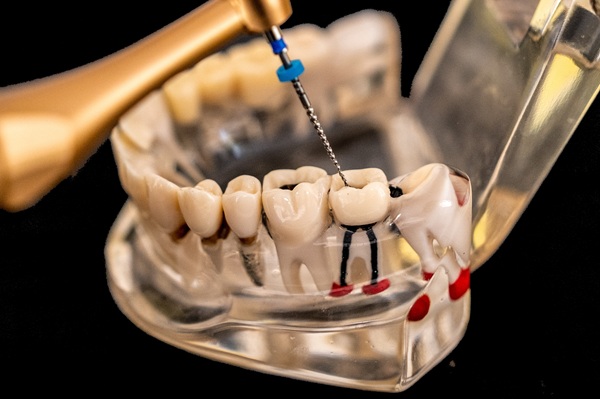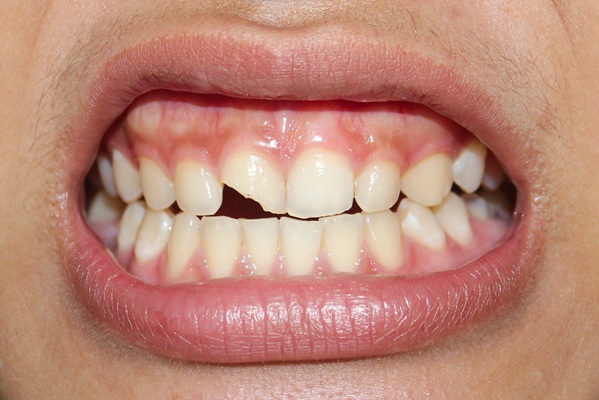Tips From an Endodontist for Preventing Cracked Teeth

Wondering how serious cracked teeth are and how to prevent them? Read on to learn more. Addressing cracked teeth often involves a comprehensive approach combining corrective and preventive measures. Cracked teeth present a predicament that goes beyond mere aesthetics, affecting functionality and sometimes worsening into persistent discomfort or pain. An endodontist specializes in diagnosing and treating tooth pain and performing root canal treatment.
Causes of cracked teeth and prevention tips from an endodontist
Common causes of cracked teeth include activities that exert undue pressure on the teeth, such as grinding and clenching. These habits occur subconsciously and often go unnoticed. Physical injuries from falls, accidents, or sports-related incidents also contribute to cracked teeth. Furthermore, large fillings or restorations sometimes compromise the structural integrity of the teeth, making them more susceptible to cracks.
Cracked teeth are not always obvious. Often, individuals experience sharp pain while biting, which may stop almost immediately, causing a false sense of normalcy. Increased sensitivity to temperatures, especially towards cold, is another sign that the tooth needs a check. Interestingly, identifying the cracked tooth could be daunting despite these indicators, as the pain is not always localized and may occur intermittently, only during certain activities, like eating.
Prevention measures are actionable steps to shield the teeth from potential cracks. Protecting teeth from cracks is feasible and easily integrated into daily routines. The following are some tips from an endodontist on preventing cracked teeth:
Change nutrition habits
A well-balanced diet ensures that the teeth get the necessary nutrients to maintain their strength and resilience against cracks. For example, incorporating foods that are high in calcium and vitamin D contributes significantly to preserving the strength of the teeth. Moreover, ensuring a consistent and adequate fluoride intake, either through diet or supplements, contributes to sustaining the hardness of the tooth enamel.
Use mouthguards
Wearing a mouthguard is a non-negotiable preventive strategy, especially for individuals engaged in contact sports or activities that pose a risk to dental health. Custom-fitted mouthguards, molded to the individual’s dental structure, provide comfort and optimal protection against physical trauma. Besides sports, mouthguards also cater to individuals who grind their teeth, providing a protective barrier that mitigates the risk of cracks.
Avoid unhealthy oral habits
Prevention also involves eliminating detrimental oral habits, such as using the teeth as tools to open packaging or chew on hard objects like ice and hard candy. Individuals need to be conscious of their oral habits and consciously direct efforts toward stopping behaviors that jeopardize the teeth’s integrity. Using alternatives, like using scissors instead of one's teeth to open packaging can help to prevent cracks.
Routine dental check-ups
Regular dental check-ups are an effective shield against cracked teeth. These periodic visits allow dental professionals to identify and treat issues that, if left unaddressed, could worsen into serious complications. From early detection of weaknesses or minor cracks in the teeth to identifying and managing bruxism, regular dental visits are a major preventive strategy against cracked teeth.
In summary
Maintaining optimal oral health requires being proactive. Understanding the factors that increase the risk of cracked teeth and adopting preventive strategies can help preserve your smile. If you believe you may have a cracked tooth, contact us today to schedule an appointment with an endodontist.
Request an appointment here: https://www.sheats-endo.com or call Sheats Endodontic Group at (615) 526-2495 for an appointment in our Nashville office.
Recent Posts
If you're wondering, "how can I find an endodontist near me?" read on to learn more. Endodontic pain, often caused by tooth trauma or root canal problems, can be disruptive and significantly affect one’s quality of life. The endodontist does the root canal treatment to ease tooth pain. When searching for “an endodontist near me,”…
Having a chipped tooth is not something that anyone wants to deal with. It can be problematic because of the treatment required. Additionally, having a chipped tooth can be painful and make it challenging to eat and even speak like normal. Fortunately, there are a plethora of resources that people can use in order to…
Breaking a tooth can be a frightening time for anyone, and not knowing whether to seek emergency dental care for the broken tooth or wait for the regular office to open can add to the stress. The good news is that broken teeth are often resilient and can usually be restored to their normal function,…
Tooth pain relief is often necessary when decay, infection, or trauma affects the inner structure of a tooth. In many cases, root canal therapy is the most effective way to eliminate pain, save the natural tooth, and prevent further complications. This procedure removes infected or damaged pulp, cleans the root canals, and seals the tooth…


